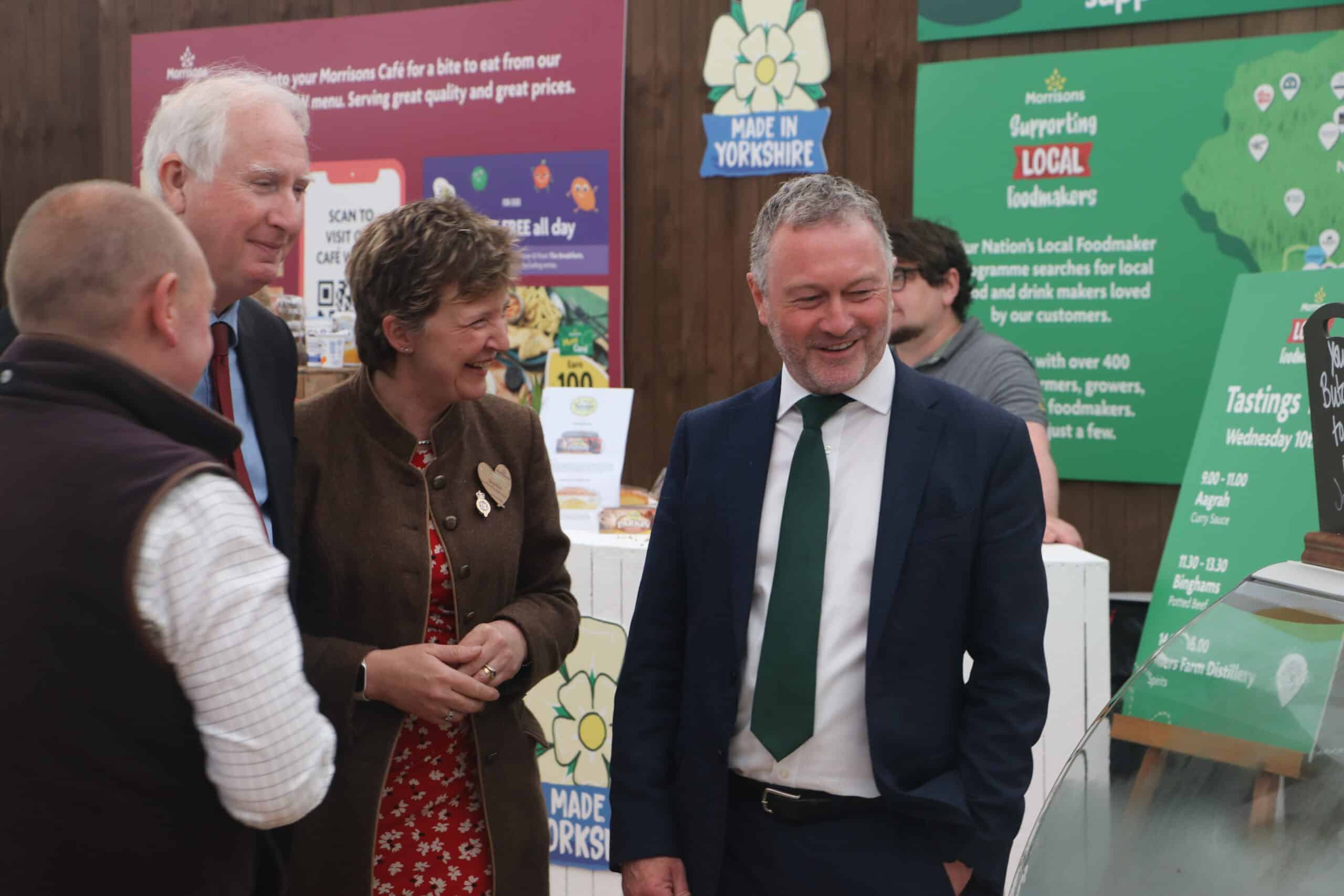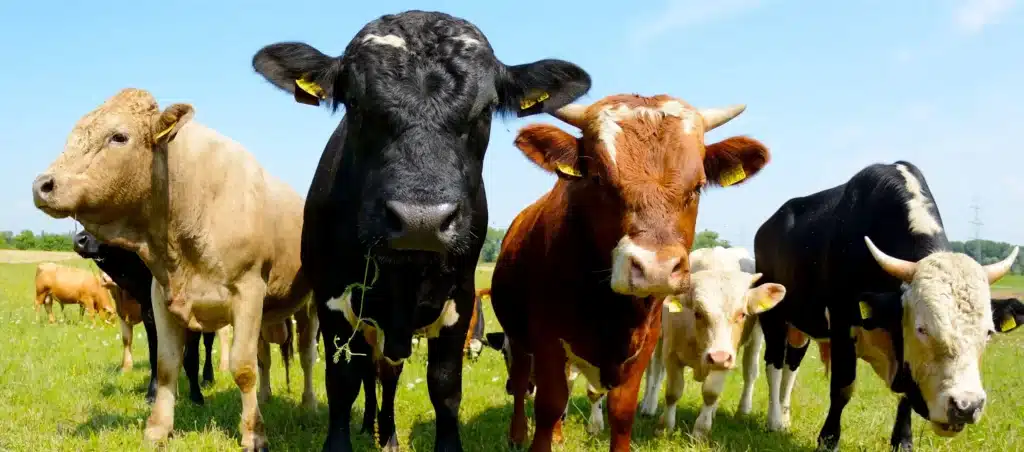Please note, the following updates come directly from Defra, and are not written by Land App.
This month, Defra have made the following announcements:
Defra’s new ministers have been touring agriculture and trade shows around the country, meeting with farmers and stakeholders such as the NFU and CLA to set out the Government’s new deal for farmers.
This includes:
- boosting Britain’s food security;
- restoring nature;
- supporting rural economic growth;
- protecting farmers from being undercut in trade deals;
- making the supply chain work more fairly;
- protecting farmers from shock rises in bills by switching on GB energy;
- and using the government’s purchasing power to back British produce.
The Secretary of State reiterated plans to restore stability and confidence for farmers and outlined his commitment to the Environmental Land Management (ELM) schemes. Defra will not overturn the applecart by overhauling the schemes.
Defra will optimise the schemes in an orderly way, over time, ensuring they produce the right outcomes in a just and equitable way, ensuring all of our schemes work for all farmers including small, grassland, upland and tenanted farms.
Minister Zeichner has also met with farmers in Devon during a visit to a Sustainable Farming Incentive pilot farm to better understand the challenges farmers are facing. As well as attending the Great Yorkshire Show, Minister Zeichner also attended the NSA Sheep Event in Malvern.

Free bluetongue testing for livestock moving from high-risk areas
There has been a recent increase in confirmed BTV-3 cases in the Netherlands, Germany and Belgium with some animals showing severe clinical signs. It’s crucial that livestock keepers in Great Britain are prepared for the possibility of cases being confirmed here.
Keepers are reminded that free bluetongue testing for ruminants (such as cattle, sheep, deer and goats) or camelids (such as alpacas and llamas) is available for those who plan to:
- move them out of the high-risk counties to live
- sell them at a market within a high-risk county where there will be buyers from outside the high-risk counties
This free and voluntary bluetongue testing is available to keepers in the high-risk areas of Norfolk, Suffolk, Essex, Kent and East Sussex, in advance of any zones being declared.Keepers in these counties are currently at the highest risk of BTV-3 from infected midges being blown over from the continent, where the disease is present. Free testing will help livestock keepers to manage the risks of bluetongue, given that BTV-3 does not present clinical signs in all animals.
Livestock keepers should apply for free testing at least 10 working days before the planned movement or market date. The vet should sample animals 5 working days before the move or market date to allow time to receive results
Read more about how free bluetongue testing works.
To book a test for your animals, contact Farmcare by telephone on 0800 612 5289, or email: admin@ukfarmcare.com
Grants for laying hen housing available
A grant for hen housing is now available to laying hen and pullet farmers in England with flocks of 1,000 birds or more. Defra have published the guidance for the grant on GOV.UK.
Farmers can get funding for two different types of projects:
- £5,000 – £100,000 available towards installing a new veranda on an existing building
- £15,000 – £500,000 available towards refurbishing or replacing existing laying hen and pullet housing
Applications will close at 23:59 on 18 September 2024.
Grants for tackling endemic diseases available
New support is available to tackle endemic diseases for keepers of beef cattle, pigs and sheep. As part of the Annual Health and Welfare Review this support provides livestock keepers with access to testing, as well as advice on how to remove disease from their farm and improve biosecurity.
The payment rates for this support vary by species:
- £215 for beef cattle with no BVD
- £837 for beef cattle where BVD is present in the herd
- £639 for sheep
- £923 for pigs
This support is not yet available to keepers of dairy cattle. The availability will be communicated to dairy keepers in due course.
Apply for funding on GOV.UK: Get funding to improve animal health and welfare (defra.gov.uk)
Environmental Impact Assessment (EIA) (Agriculture) regulations: getting permission to make changes to your land
Natural England has published more guidance and made improvements to the way that landowners in England get permission to make changes to uncultivated, semi-natural and rural land.
What are Environmental Impact Assessment (EIA) (Agriculture) regulations?
These regulations protect land in England from damage caused by changes to the way land is managed such as increasing agricultural productivity, changing field boundaries, or moving, removing or adding materials.
What land is protected by the regulations?
EIA (Agriculture) regulations protect land in England from damage caused by changes in agricultural activities. They apply to anyone who wants to change the use of uncultivated, semi-natural or rural land.
The types of land protected from damage caused by increasing agricultural productivity are:
- uncultivated land – land that has not been cultivated in the past 15 years by physical means (for example ploughing or an activity that breaks the soil surface) or by chemical means (for example adding organic or inorganic fertiliser or soil improvers)
- semi-natural land – including priority habitats, heritage or archaeological features, and protected landscapes
The type of land protected from restructuring is:
- rural land – land used for agriculture and traditional uses
What changes have been made?
You need to include copies of all the consultations you have undertaken requesting advice on the environmental impact of your proposed project. If you do not include copies of the consultation responses within your application, Natural England will request these from you and it will take longer to issue your screening decision.
The ‘Apply for a screening decision’ guidance and ‘EIA 1’ & ‘EIA1a’ application forms have been improved to highlight the sections of the application form that require you to provide additional information and will remind you to include these, this will help to avoid any unnecessary delays in processing your application.
If you have existing EIA forms saved to your device, discard these and use the new forms.
What about land in Environmental Land Management (ELM) schemes like the Sustainable Farming Incentive (SFI)
Your land management practices may change when entering or leaving an environmental land management scheme, such as Environmental Stewardship and Sustainable Farming Incentive. If you propose to change the use of uncultivated, semi-natural or rural land, check when you need permission to do so.
Need more support?
If you need more information, contact Natural England:
- Environmental Impact Assessment (EIA) (Agriculture) Unit
- Email eia.england@naturalengland.org.uk
- Freephone 0800 028 2140
Saving our Spruce
Active management of woodland through the Tree Health Pilot is helping keep invasive beetles at bay.
The Tree Health Pilot (THP) pays farmers and land managers for biosecure felling and treatment of diseased or infested trees, and for proactive spruce felling within the Pilot area. It also supports restocking and maintaining new trees after pest or disease outbreaks.
The THP scheme is testing different ways of slowing the spread of pests and diseases affecting trees in England. The scheme is open for applications.
The THP helped prevent the spread of pests and diseases at Hole Park in Kent. Hole Park is a family-owned estate in Kent with a history of growing spruce for the local Christmas tree market. In early 2022, Forestry Commission surveillance identified it as a site susceptible to Ips typographus, a spruce bark beetle.
Ips typographus is a major pest in Europe which can severely damage Britain’s spruce forestry and timber industries. The landowner at Hole Park was advised to proactively remove the potentially ‘at-risk’ spruce and was informed about the Tree Health Pilot scheme. After a successful grant application, they received support for felling the spruce, restocking with a diverse mix of trees, maintaining them, and acquiring biosecurity items.
Find out more about the Tree Health Pilot on the GOV.UK website.

